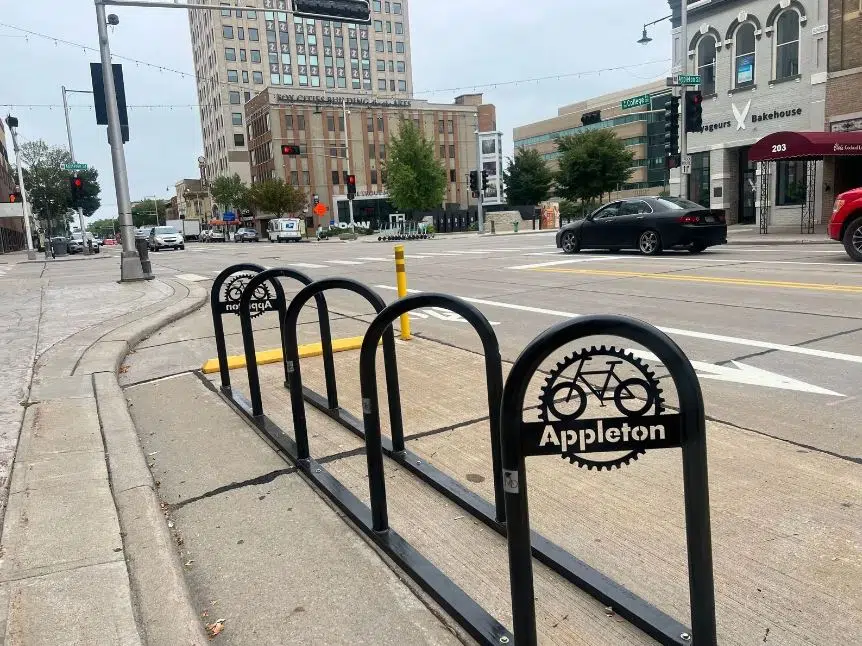
College Avenue in Appleton, August 24, 2023. PC: Fox 11 Online
APPLETON, WI (WTAQ-WLUK) — It’s a global issue with local implications.
President Donald Trump delayed most of his tariffs earlier this week for another 90 days. That means no tariffs just yet, but no answers either.
“We all have to make ends meet here,” said Pamela Goel, owner of Olive & Rose Boutique in downtown Appleton, referring to the possibility of price increases. “I don’t know if that’s going to drive customers away, or people are just not going to want to shop that much anymore. We don’t know.”
Goel estimates that 90% of her products are imports, mostly from China. Trump delayed reciprocal tariffs for all countries except for China, where he increased tariffs from 104% to 125%.
Because of the back-and-forth nature of the tariff proposals, Goel doesn’t have a precise estimate on how much she’ll need to raise costs, but vendors are already raising their prices.
“We are getting those emails from our vendors every single day, sometimes three times a day,” said Goel.
Costs typically are passed from manufacturer to vendor to business owner and then to the consumer.
Not every small business is impacted in the same way, though. It helps to sell a product ubiquitous with Wisconsin.
“We do try to source our things as locally as possible,” said Alicia Andrews, manager of Cleo’s Cocktail Lounge on College Avenue. “We sell beer from the local breweries here in Appleton. We buy liquor from local distilleries. We try to support our neighbors right here in town as much as possible.”
Chuck Myers, the owner of The Rug Company on College Avenue, described the tariff situation.
“Uncertainty,” he said “That’s exactly the way I’d describe it.”
He worried about the 27% tariff initially imposed against India, the leading manufacturer of rugs sold at his store.
Some rugs he sells advertise themselves as “Made in the U.S.A” — but it’s not that simple. He said just because they’re made or printed domestically, they aren’t exclusively American products.
They’re typically assembled in other countries, or at least made with imported materials. The tariffs come into play at one point or another in the process.
It’s yet another obstacle for business owners like Goel, who has dealt with COVID-19, supply chain issues and inflation already in her four years owning Olive & Rose Boutique.
“We don’t know how much of an increase,” said Goel, referring to the price from the vendors. “That’s something that we don’t know, but it’s definitely scary.”



Comments